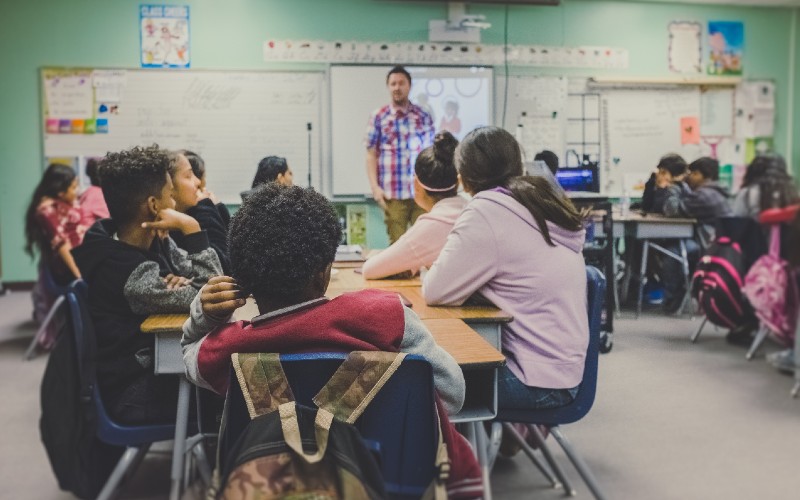Artificial intelligence will be developed to help teachers mark work and plan lessons under a new project announced by the UK government.
The project, backed by £4 million of government investment, will pool government documents – including curriculum guidance, lesson plans and anonymised pupil assessments – which will then be used by AI companies to train their tools so they generate accurate, high-quality content such as tailored, creative lesson plans and workbooks that can be reliably used in schools.
The content store is targeted at technology companies specialising in education to build tools which will help teachers mark work, create teaching materials for use in the classroom and assist with routine school admin.
“We know teachers work tirelessly to go above and beyond for their students,” said Science Secretary Peter Kyle. “By making AI work for them, this project aims to ease admin burdens and help them deliver creative and inspiring lessons every day, while reducing time pressures they face.
“This is the first of many projects that will transform how we see and use public sector data. We will put the information we hold to work, using it in a safe and responsible way to reduce waiting lists, cut backlogs and improve outcomes for citizens across the country.”
Minister for Early Education Stephen Morgan added: “We are determined to break down the barriers to opportunity to ensure every child can get the best possible education – and that includes access to the best tech innovations for all.
“Artificial Intelligence, when made safe and reliable, represents an exciting opportunity to give our schools leaders and teachers a helping hand with classroom life.
“Today’s world-leading announcement marks a huge step forward for AI in the classroom. This investment will allow us to safely harness the power of tech to make it work for our hard-working teachers, easing the pressures and workload burdens we know are facing the profession and freeing up time, allowing them to focus on face-to-face teaching.”
EdTech 50 – UK’s most innovative education tech creators for 2024
The content store, backed by £3m, includes a partnership with the Open University which is sharing learning resources to be drawn on as part of the project.
This follows Department for Education tests, published today, which show providing generative AI models with this kind of data can increase accuracy to 92%, up from 67% when no targeted data was provided to a large language model.
To encourage AI companies to make use of the datastore, a share of an additional £1m will be awarded to those who bring forward the best ideas to put the data into practice to reduce teacher workload.
Each winner will build an AI tool to help teachers specifically with feedback and marking by March 2025, with applications opening on 9th September.
Almost half of teachers are already using AI to help with their work, according to a survey from TeacherTapp, but current AI tools are not specifically trained on the documents setting out how teaching should work in England.
Chris Goodall, a teacher and head of digital education in the Bourne Education Trust, first started using AI when he was teaching business in November 2022. He experimented with using ChatGPT to develop a range of lesson activities, such as personalised case studies, to complement his lessons.
He now supports teachers across over 26 primary, secondary and specialist schools in the Trust to enhance their lessons and cut down the time they need to spend on admin by using AI.
Teachers at Auriol Junior School even illustrated a teacher-written guide encouraging students to read more books with AI-generated text, cartoon creatures and music, encouraging students to become a ‘literacy monster’.
“AI has been a hugely powerful tool for me and my colleagues at the Bourne Education Trust,” said Goodall. “It allows us to create engaging, personalised learning experiences for our students while also significantly reducing the time taken to create them.
“Personally, I’ve used AI to quickly generate scaffolded activities, adapt materials for students with special educational needs, and create more engaging lessons that are accessible to all. The time saved allows school staff to focus on what matters most, interacting with students and providing individualised feedback and support.
“The content store will take this to the next level by offering easy access to high quality evidence based and legally compliant education materials. Developed with input from educators it supports effective teaching practices and fosters collaboration and innovation.
“This initiative demonstrates how AI, when implemented responsibly and ethically, can support and empower teachers to create more dynamic, personalised learning experiences for students.”


